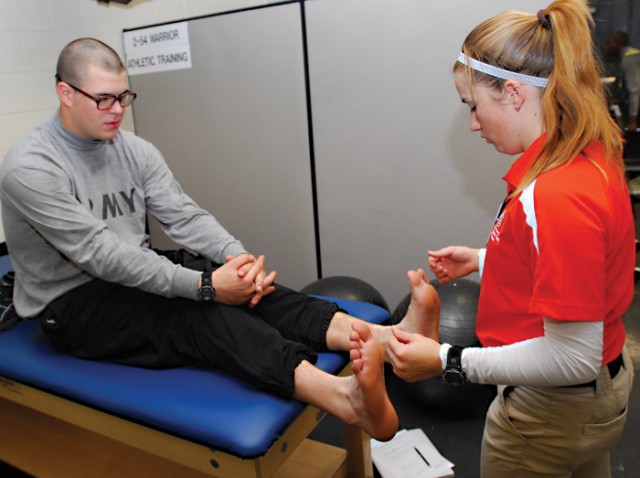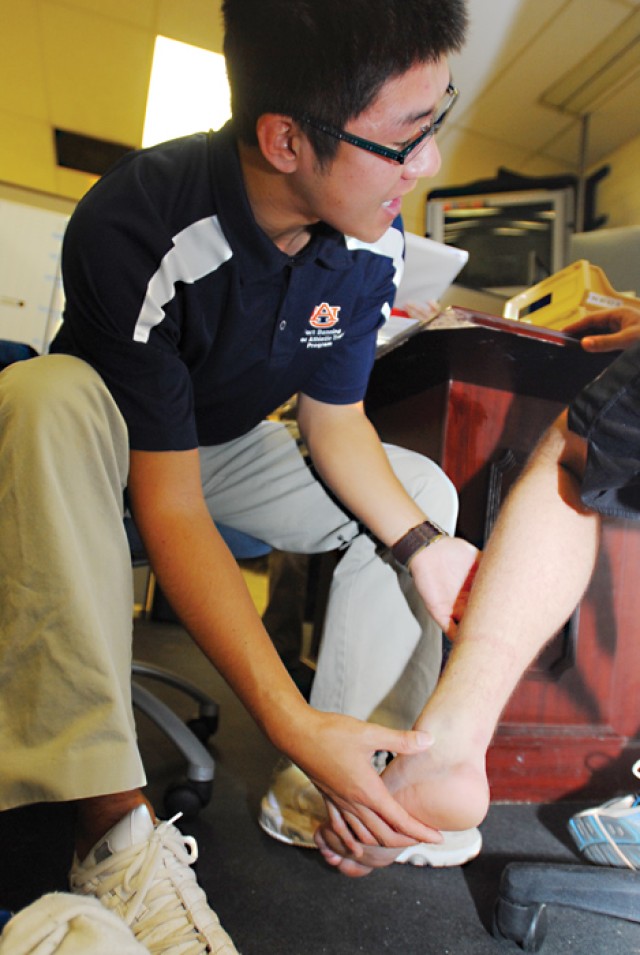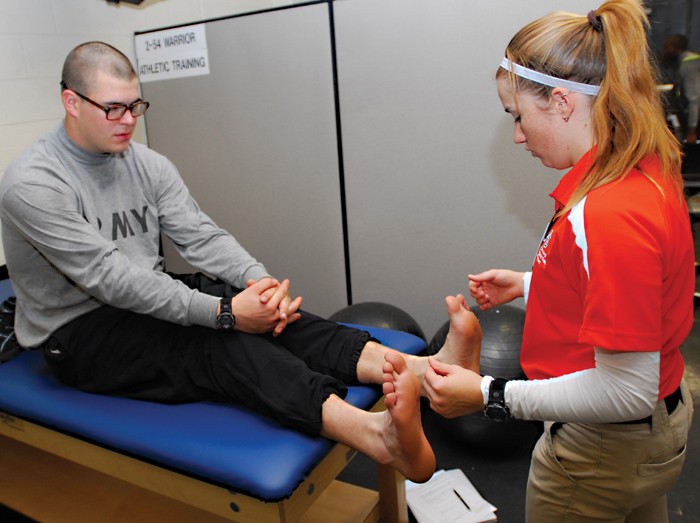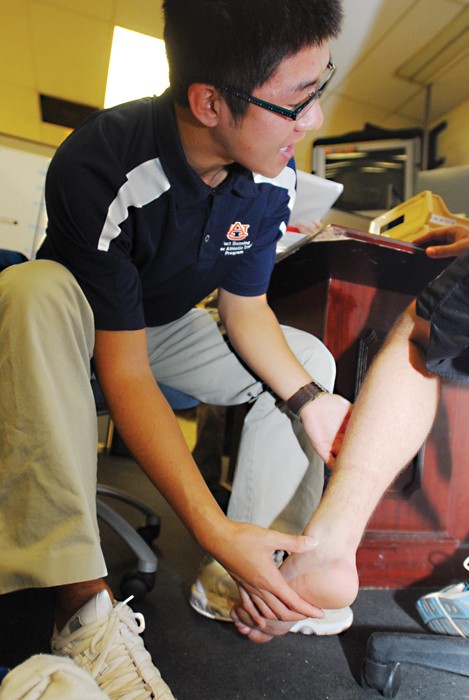FORT BENNING, Ga. - Athletic Training graduate students from the Department of Kinesiology at Auburn University are diagnosing, treating and preventing injuries in Soldiers as part of the Warrior Athletic Trainer Program, a pilot partnership program, with the 192nd Infantry Brigade on Sand Hill.
In a makeshift office inside the unit's gym, Lexie Douglas inspected Pfc. Caleb Moss' swollen ankle Tuesday.
"I heard a pop and knew I'd done something," said Moss, after rolling his ankle two days ago while getting out of bed. Moss, in one-station-unit-training to become an infantryman, said he hesitated to get help because he was worried about not being allowed to finish basic training with his company if the injury was serious.
After a 15-minute evaluation, Douglas diagnosed Moss with a class one sprained ankle and showed him stretches to help alleviate the pain until his ankle heals. Within an hour, Moss was back training with his company.
Douglas is a first-year graduate student and one of eight certified athletic trainers to participate in the Warrior Athletic Trainer Program. The program began in October.
From 5:30 to 10 a.m. six days a week, the students, accompanied by their supervisor, Dr. JoEllen Sefton, diagnose injuries, teach Soldiers rehabilitative techniques and evaluate Soldiers during physical training to detect potential injuries.
Sefton, director of Auburn's Neuromechanics Research Laboratory and coordinator of the Post-Graduate Certification Athletic Training Program, said the partnership has taken some of the burden off the troop medical clinics and provided the brigade with specialized care that translates to a cost savings for the Army.
"Right now, the TMCs are overwhelmed, their lines are out the door," said Sefton, a certified athletic trainer and massage therapist. "We are musculoskeletal specialists and a lot of staff at the TMCs and aid stations aren't so we can help them in this area. For every Soldier we treat, we save the Army a $250 visit to the TMC."
Maj. Todd Burkhardt, executive officer for the battalion, said the program helps cadre who would otherwise put off getting help for an injury.
"Drill sergeants work long hours so they habitually put off seeing anyone for an injury because they don't have a lot of time," he said. "If the athletic trainers aren't tied up, the cadre can go to them."
Masa Mizutani, an athletic trainer, said he's learned treating injured Soldiers is a lot different than treating athletes.
"Even though they may have the same injuries, every person's body reacts a different way," Mizutani said.
Sefton said the program is a good opportunity for the athletic trainers.
"This is a completely different environment for them," she said. "The injuries they see here are very different than what they've seen in football and other sports. What I would think is a meniscus injury on a football field, is most likely going to be a stress fracture here, so you have to change that mentality."
Sefton said the variety of ages and fitness levels of those entering the Army also provides a learning curve for the athletic trainers.
"We have such a wide range to treat, everyone from the couch potato to the high school athlete, and each person adapts to physical stresses in a different way," she said.
Lt. Col. Dean Weiler, commander of the battalion, said he expects the program to increase knowledge among the cadre and reduce the injury rate among Soldiers. Weiler and Burkhardt brought the program to the brigade after seeing a similar partnership at Fort Jackson, S.C. Weiler said he expects a decline in the number of Soldiers who have to restart training as a result of an injury.
"We've already seen a significant decrease in the severity of injuries since the program started," he said. "We are catching injuries earlier and getting them looked at sooner."




Social Sharing